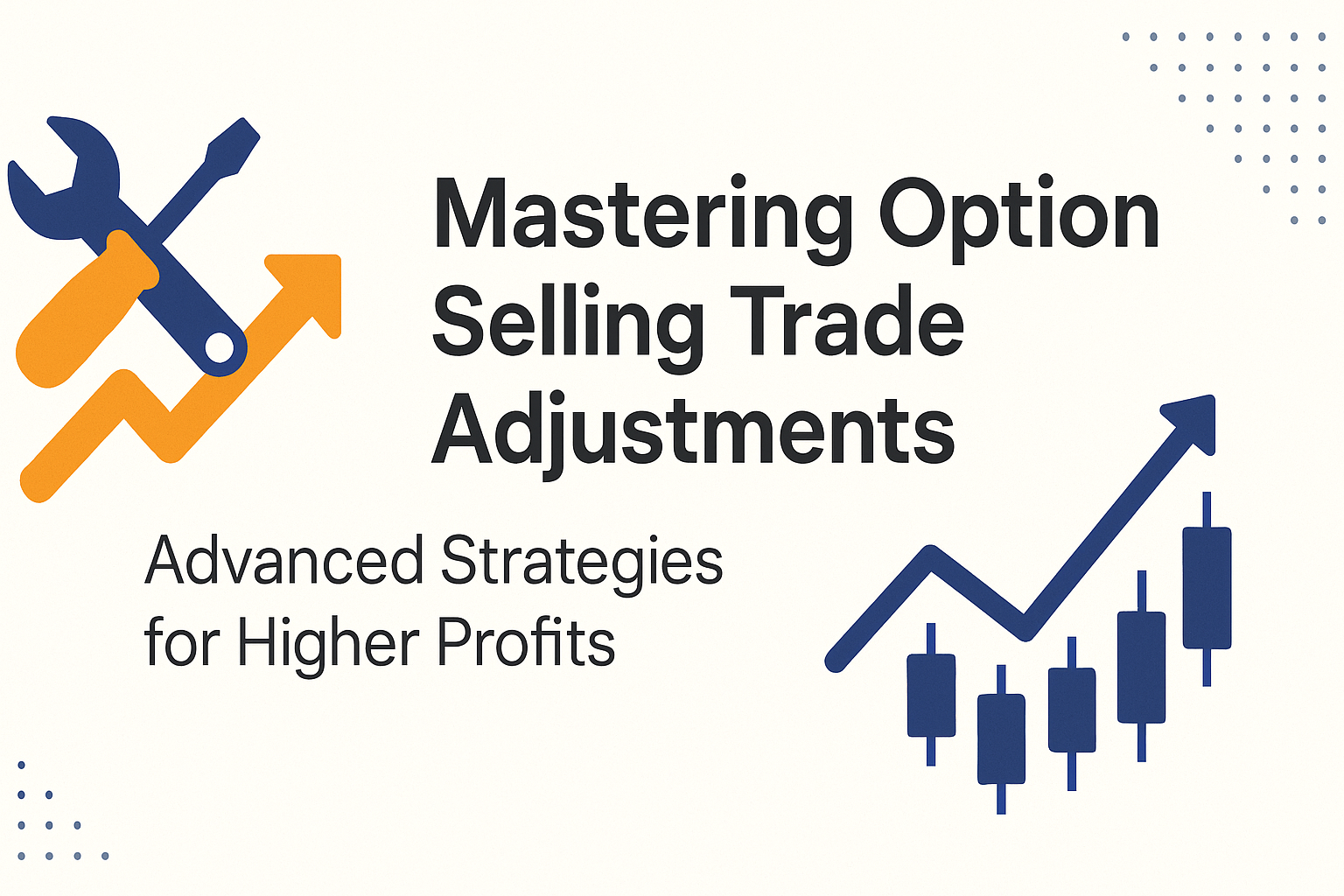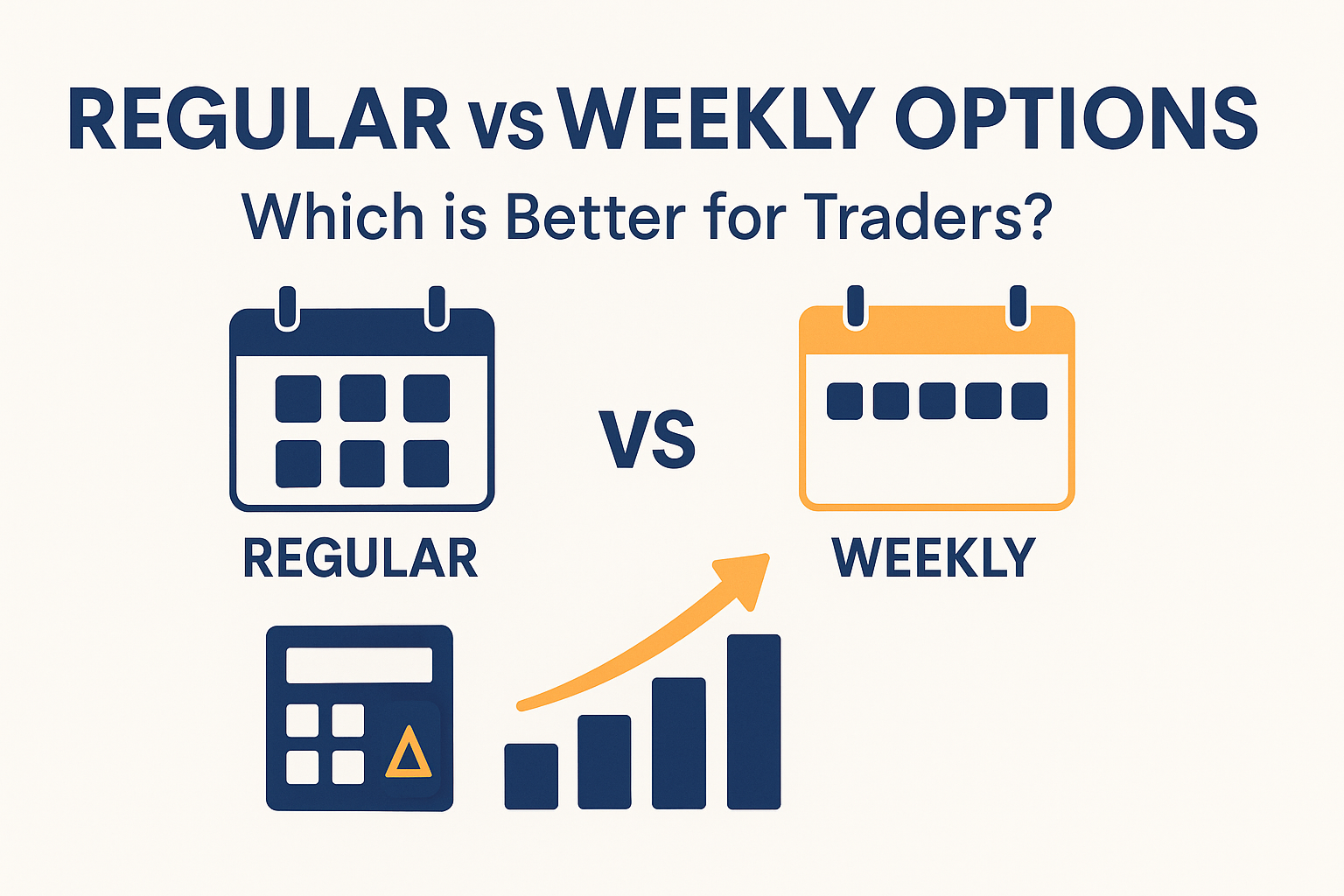Why Option Selling is the Ultimate Strategy for Consistent Income in Trading?
When it comes to building consistent income from the stock market, option selling stands out as a reliable and proven strategy. Unlike speculative approaches that rely on market predictions or news-based triggers, option selling leverages time decay and probability to create consistent returns over time.
In this blog, we’ll explore why option selling works so well, what makes it more consistent than buying options, and how you can use it as part of your long-term trading system.
What Is Option Selling?
Option selling (also known as “writing options”) is the process of collecting premiums by selling options to buyers. When you sell an option, you’re taking the opposite side of the trade — providing the right (but not the obligation) to the option buyer to buy/sell the asset at a certain price before expiry.
There are two primary ways to sell options:
- Selling Call Options (Bearish bias)
- Selling Put Options (Bullish bias)
You can also combine them to create advanced strategies like Iron Condors or Credit Spreads, which are designed to profit in range-bound or mildly trending markets.
Why Option Selling Is More Consistent Than Option Buying
1. Time Decay Works in Your Favor
One of the biggest reasons option sellers win more often is because of theta decay. Options lose value as they get closer to expiration. As a seller, you benefit from this natural decay, especially in the last 7–10 days before expiry.
Even if the stock or index doesn’t move much, the premium collected keeps decaying in your favor.
2. High Probability of Profit
Statistically, options expire worthless more than 60% of the time. That means, as a seller, you already have the probability advantage.
For example, if you sell an out-of-the-money (OTM) put or call with a 70% probability of expiring worthless, you only need to manage risk on the 30% of trades that may go wrong.
This probability edge makes option selling a high-confidence strategy for consistent income.
3. Income-Based Approach, Not Prediction-Based
Option buyers need a strong move in a short time to make profits — which requires market timing and volatility prediction.
On the other hand, option sellers focus on generating steady premium income, much like rental income from property. The focus is on risk management and strategy execution, not on forecasting the next big move.
4. Flexibility With Neutral Strategies
Option selling allows you to create non-directional trades like:
- Iron Condors
- Short Straddles/Strangles (with proper hedges)
- Credit Spreads
These strategies work well in sideways markets or when you expect low volatility — giving you more opportunities to trade consistently in different market conditions.
5. Compounding Premiums Over Time
The real magic lies in compounding the premiums. Just like SIPs grow with reinvested interest, option sellers can reinvest the weekly/monthly profits to grow capital steadily.
With proper risk management and capital allocation, this becomes a scalable income system.
Realistic Returns & Risk Management
While the probability is in your favor, option selling is not risk-free. You must:
- Use defined-risk strategies like Bull Put Spread, Bear Call Spread, or Iron Condors.
- Avoid naked selling, especially in volatile instruments.
- Manage position sizing (ideally risking 1–2% per trade).
- Always trade with a stop-loss and adjustment plan.
Most consistent option sellers aim for 3–6% monthly returns. Over time, this compounds into a significant return, far better than traditional instruments — and with lower stress.
You can build and analyse your strategies before deploying to market using Sensibull.
Final Thoughts
Option selling isn’t a get-rich-quick scheme, but a disciplined approach to generate reliable income. It rewards patience, risk control, and a mindset focused on consistency over excitement.
If you’re someone who prefers probability, logic, and steady growth — option selling can be your edge in the stock market.
Check out my recommended stock market tools for Indian traders.
Recommended Reads:
- Option Selling vs Option Buying – Which One is Better for Consistent Income?
- Which is Better for Consistent Returns? Weekly or Monthly Options.
- know How Compounding Works in Options Income
Let your mind trade — not your emotions.






